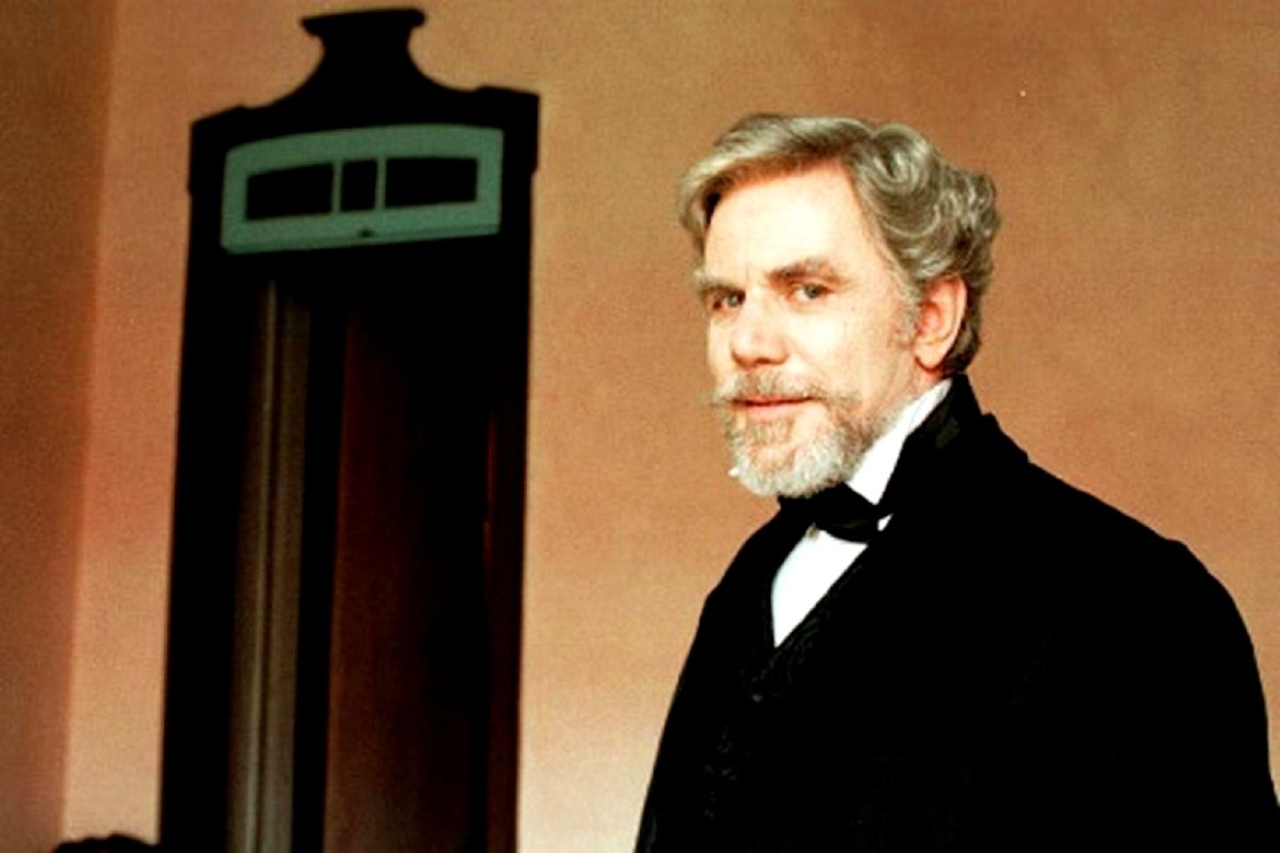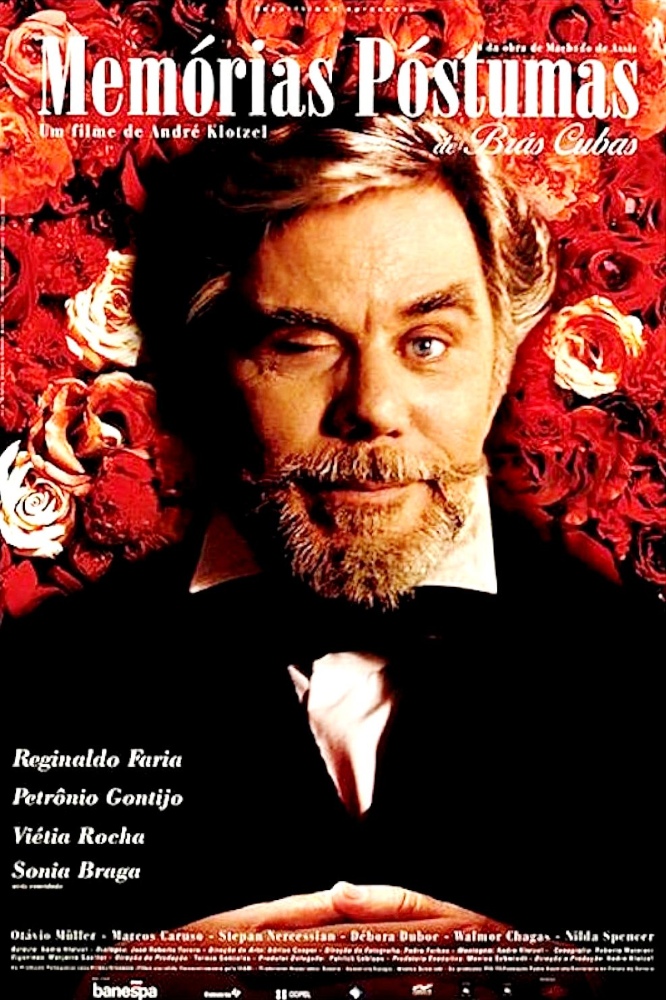(Póstumas de Brás Cubas)
Crew
Director/Producer – Andre Klotzel, Screenplay – Andre Klotzel & Jose Roberto Torero, Based on the Novel Memórias Póstumas de Brás Cubas (The Posthumous Memoirs of Bras Cubas) (1881) by Machado de Assis, Photography – Pedro Farkas, Music – Mario Manga, Visual Effects – Fantasy II Film Effects (Supervisor – Tim Molinder), Production Design – Beto Mainieri. Production Company – Cinematografica Superfilmes LTDA/Lusa Filmes/Cinemate/PIC TV/Fundação Padre Anchieta/Quanta/Consórcio Europa.
Cast
Reginaldo Farias (Bras Cubas), Petronio Gontijo (Young Bras Cubas), Vietia Rocha (Virgilia Dutra Neves), Otavio Muller (Lobo Neves), Marcos Caruso (Quincas Borba), Sonia Braga (Marcela), Debora Duboc (Dona Eusebia), Milena Toscano (Eugenia), Stephan Nercessian (Bento Cubas), Ana Abott (Nha Lolo), Walmor Chagas (Dr Vilaca), Nilda Spencer (Dona Placida)
Plot
Brazil, 1869. Bras Cubas witness his own funeral after his death from pneumonia at the age of 65. Bras starts to tell his life story. A child of wealth in Rio de Janeiro, he grew up and soon learned a love of women. After studying law in Europe, his father pressed him to marry the spirited Virgilia, the daughter of a councilman, and to enter a career in politics sponsored by her influential father. Instead, he saw Virgilia stolen away by Lobo Neves who won all the privileges that Bras believed were his. In years to come, Bras and Virgilia began an intense affair underneath Lobo’s nose.
Posthumous Memoirs is a film based on a novel Posthumous Memoirs of Bras Cubas (1881) by Joaquim Maria Machado de Assis, who is probably the most acclaimed writer in Brazilian literature. (The book is sometimes translated into English as Epitaph for a Small Winner). Posthumous Memoirs is a modern attempt to make a film from Machado de Assis’s novel.
Posthumous Memoirs comes out as a cross between Da (1988), an eccentric biography of a writer’s father wherein the father turned up throughout as an annoying ghost, and Tristram Shandy: A Cock and Bull Story (2005), which was partly a story about a man attempting to tell his lifestory that ended up sidetracking off into numerous digressions.
Although more than anything, what Posthumous Memoirs resembles is the original Heaven Can Wait (1943), a story about a compulsive womaniser telling the story of his life and numerous affairs. Both Posthumous Memoirs and Heaven Can Wait adopt fantastical narrative devices that involve the narrating character being dead – in Heaven Can Wait, the womaniser tells his lifestory to The Devil while waiting in the afterlife to know his eternal judgment, while in Posthumous Memoirs the central character is a ghost who tells his lifestory direct to the audience.

Director Andre Klotzel does a decent job of portraying the historical period on a medium budget – the panoramic views of scenes and historical events are all represented by paintings, for instance. There are good performances from all involved – both Reginaldo Farias and Petronio Gontijo as respectively the older and younger versions of Bras Cubas do a fine job of evoking sympathy for a flawed character. Occasionally the historical drama achieves some penetrating insight into its characters but mostly the film ends up being a warm and likeable recount of a rogue’s memoirs. What you end up liking the film for are the eccentric pieces of wit packed away – the witty little monologues about meditation and the purpose of the nose throughout the history of civilisation, or with Bras debating about the nature of clothing and its function in promoting desire.
Posthumous Memoirs is perhaps only of peripheral interest as a fantasy film. The ghost character is at most a playful narrative device. Nevertheless, it is an amusing contrivance that Andre Klotzel and Reginald Faras do have some amusement with. Faras frequently stops and even pauses action to address the audience direct and at one point even rushes in to stop his younger self from strangling Lobo Neves and then reruns the scene in a much more placid way.
There are occasional moments where the film touches upon more than this – a scene where Reginald Faras tosses a coin and it is picked up and pocketed by his younger self; and in particular a surreal hallucination of the dying Bras – where he sees himself as a prayer book with his hands as the clasps and his face looking out, then riding across an icy landscape on a statue of a hippo, before being picked up in the fingers of the goddess of nature.


